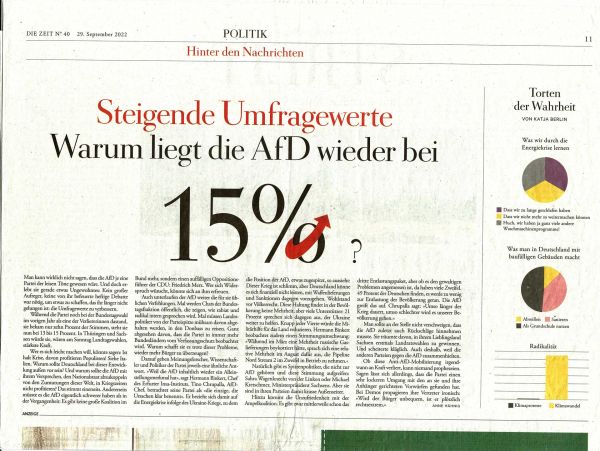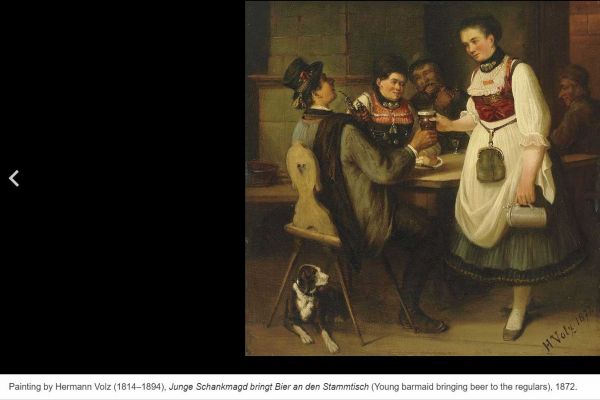Why the AfD?
Why the AfD?
Five years after the Berlin Wall came down—during the mid-90s, let's say—broadcasters in West Germany started asking their politicians some hard questions: "Have you visited the new provinces in the East?"
The politicians answered that they had visited the East, but either on fact-finding missions, or else, en route to Berlin. Most of them had a Western orientation—their favorite vacation-spots in places like Sylt on the North Sea or the Chiemgau and Starnberger See in Bavaria.
I visited Great-great-grandfather Siegling's hometown Erfurt in East Germany, for the first time, in the Summer of 1998. Many of its buildings had not been painted in years. Others stood on the verge of collapse from leaking roofs or vandalism. Sinister youths with attack dogs on a leash begged for small change or shoplifted from the struggling first generation of shops.
ost of the state-owned industries had antiquated infrastructure. When they went private, they got little attention or support and most went out of business. Engineers from the West went through the factories and graded the equipment as hardly better than scrap-metal.
West Germany spent between two and three trillion dollars to overhaul the rail-service, roads, and streets, and basic services. But ten years after the Wall fell, Erfurt still looked pretty terrible to me. The habitual inertia of the people impressed me. It resulted from years of a dictatorial government telling them what to do and not to do. Something had to rekindle their spontaniety and curiosity, to explore and take risks.
In 1999, the local maternity-hospital in Erfurt recorded fewer births than during any previous year on record. Officials said it reflected the Erfurters pessimism about the future; and Efurt actually had it better than other locations. Even today, smaller towns in the East have simply fallen off the radar. Tired of life off the beaten-path, the young people in those places can hardly wait to leave.
I remember sitting in a restaurant in Munich, the capital of Bavaria, during the Oktoberfest, while a pretty waitress in a colorful Dirndl waited on me; but neither she nor the other waitresses in that restaurant spoke German like Bavarians; so I asked them where they had lived previously—all of them in East Germany!
So when Chancellor Angela Merkel turned her attention from continuing the rehabilitation of East Germany to assisting the migrants from other nations, Germans in the East erupted with a degree of anger that Westerners had not seen in a while. And that started the ball rolling for the AfD. It took up the cause of the neglected East. The AfD had harsh criticism for Merkel and other members of her government that has its roots in Merkel's neglect.
Stymied by their daily routines and social inertia, most Germans turn a blind-eye to the problems; but informed-people do not believe the problems will go away on their own; and as more and more indigent non-Germans see Germany as their only salvation, the more Germany's government will divert resources away from Germany's own needs.



